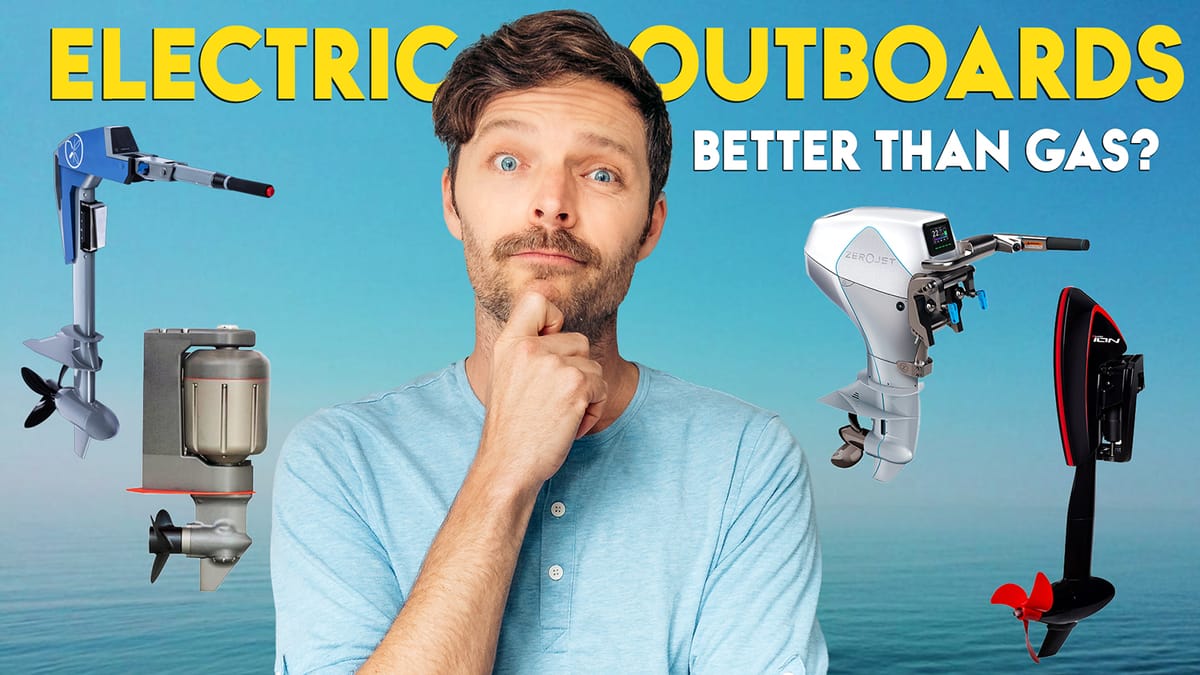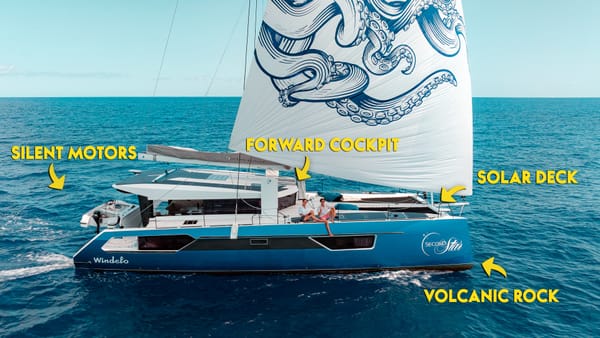Top Electric Outboards: What’s New and Worth Buying

Electric motors have come a looong way and we couldn’t be more excited about what 2025 has in store! From tiny but mighty to full-planing-power, there are finally some good electric outboard options that give gas engines real competition.
During our recent trip to METSTRADE in Amsterdam (think CES, but for boats), we had the chance to explore the latest and greatest in electric outboards.
Each motor seemed to have at least one standout feature from the competition, but they all share a common goal: making electric boating more accessible and efficient than ever.
Big Takeaways
The electric motor space is perpetually in motion. Stats change from month to month, products promoted to launch in January might be pushed back till August, and it's nearly impossible to compare unless you're in a tender doing a side-by-side in the exact same conditions (sorta like what we did in New Zealand a couple years back). The thing is, I think all these companies are learning from the motors that are out in the wild, and doing their best to keep up with an ever expanding market.
So we made the tables below as a baseline to get you started. Because there's no doubt numbers will be different once these motors are getting substantial real-world use.
Motor Comparison
|
|
kW |
Weight (kg) |
HP Replacement |
Performance (Power to Weight: watts/kg) |
|
ZeroJet |
18 |
38 |
25 |
474 |
|
MiTek |
12 |
46 |
15 |
261 |
|
Momentum |
10 |
30 (with mount) |
15 |
333 |
|
ION |
6 |
32 |
8 |
188 |
|
Momentum |
2 |
11 kg (19 with batt) |
3 |
182 (does not include batt) |
Battery Comparison
|
|
Watts (kWh) |
Weight (kg) |
Performance (watt hours/kg) |
|
Momentum |
6.4 @ 72V |
37 |
173 |
|
ZeroJet |
5.4 @ 48V |
50 |
108 |
|
Ilmor Ion |
4.4 @ 48V |
32 |
138 |
|
ePropulsion |
3 @ 48V |
33 |
91 |
Battery comparison is an interesting one. If we quickly look at the stats above it looks like Momentum wins in the performance metric by a longshot. But you'll notice they are using 72V while the other companies are using 48V. Manufacturers have told us they prefer 48V because it’s safer. We’ve also been told a standard electrician can work on 48V, but anything higher needs a high voltage certified electrician. But for me the biggest downside with 72V is you’re locked into a proprietary system, meaning you cannot use 3rd party batteries as easily. And trust me, if you have an issue in a country that doesn’t like shipping/receiving lithium batteries, this could become a major headache.
One other thing we learned about batteries from ZeroJet: Sometimes companies under-spec the information on their website. The ZJ website says the battery is 5 kWh but in reality, it’s 5.38 kWh. Also, in the video Neil from ZJ says “we use Super B LFP...and it’s quite a high-performance battery”. But look at the battery comparison table and it seems their battery is heavy. So, we asked why, and turns out their battery casing houses additional components like relays, switches and diagnostic sensors as well as the Lithium cells.
So just like the motor, use the table for reference, but know it isn’t providing a full picture. What matters most is the complete package including the Motor, mounts, props, batteries, connector cables, etc.
Are Electric Outboards Better Than Gas?
With electric there is almost no maintenance and it’s much quieter compared to gas powered engines. And for the first time, we’re seeing motors with a power-to-weight ratio that rivals combustion engines—an impressive leap forward for electric boating.
However, electric still doesn’t have the range that gas does. In our opinion, the motors are there, but we need a leap in battery technology to fully bridge the gap.
But, depending on your body of water, electric may be your only option. Many lakes around the world have banned gas-powered boats (and more are talking of doing the same). The reasons vary, but most often it is because of environmental concerns and/or drinking water quality.
Do We Like Our Electric Jet Tender?
Overwhelmingly yes! The range and power suit our needs well and there has NOT been even one time when we thought, "it would be really nice to have gas right now". But there have been numerous times we have been thankful to have a quiet motor, no prop to catch lines or debris and we are uber grateful not to be searching out and lugging gasoline back to the boat. We plan to do a full review of our tender, ground tackle and the electric jet propulsion soon. So stay tuned.
Have you already made the switch to electric or thinking about it? Let us know in the comments below!




